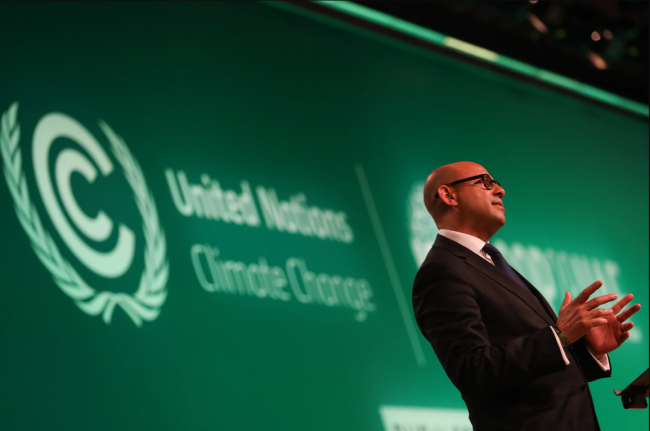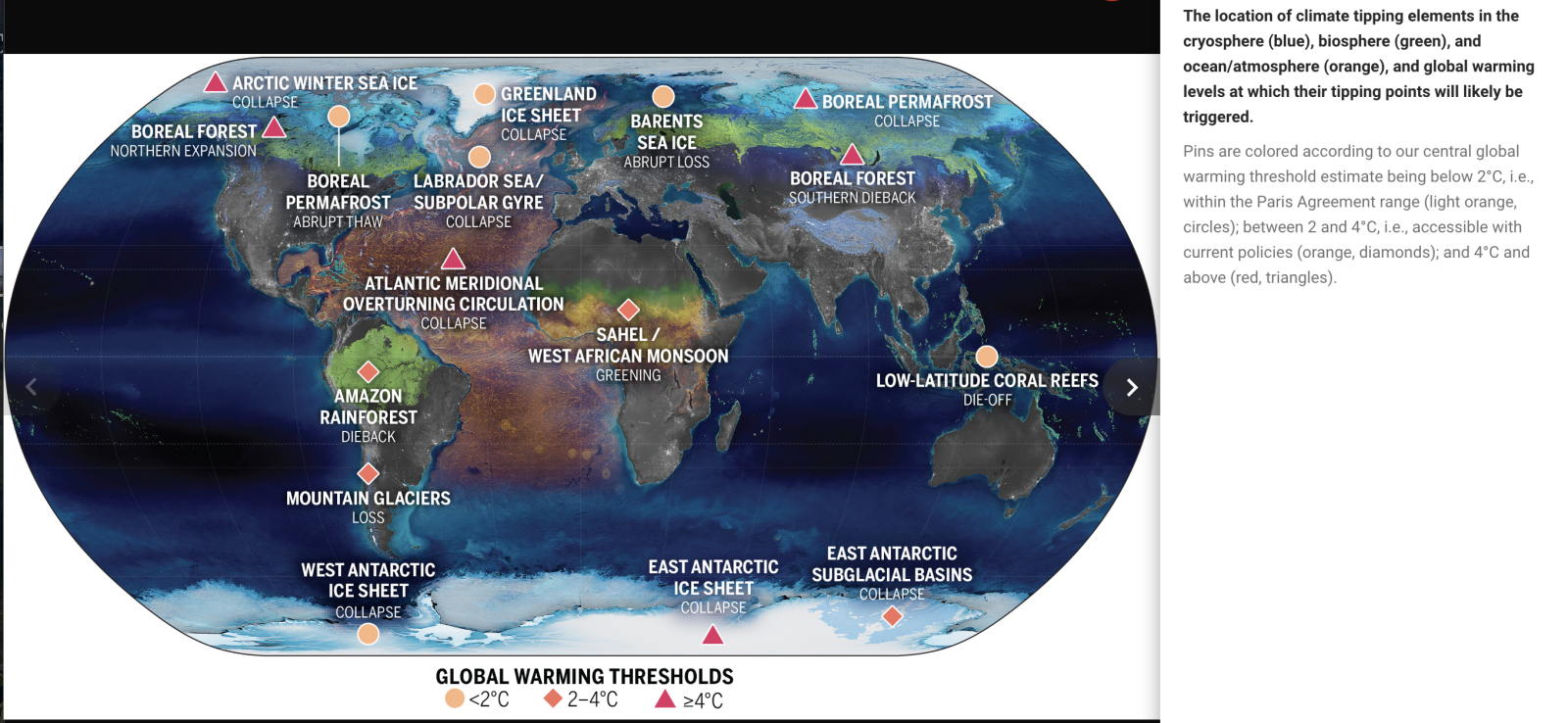Articles Menu

Nov. 30, 2023
Countries around the world, including Canada, are officially under pressure to further ratchet up their commitments under the Paris Agreement, the UN’s climate change executive secretary Simon Stiell told delegates at the annual climate negotiations in Dubai.
The latest grim findings from climate scientists estimate that based on current trajectories, the planet has roughly six years before blowing past the Paris Agreement’s goal to hold global warming to 1.5 C, Stiell said during the COP28 opening ceremony.
“If we do not signal the terminal decline of the fossil fuel era as we know it, we welcome our own terminal decline,” Stiell said. “And we choose to pay with people’s lives.”
That 1.5 C target is widely considered a threshold which, if crossed, leads to irreversible tipping points that lock in extreme, catastrophic damage. In Canada, those tipping points include permafrost abruptly thawing and releasing potentially hundreds of billions of tonnes worth of methane — a potent greenhouse gas — into the atmosphere, and Arctic ice sheets melting away and unable to recover. As tipping points become better understood, some climate scientists now believe danger is closer than ever previously known.

This year, a major focus of the climate summit is what’s called the “global stocktake.” It’s a formal check-in on progress under the Paris Agreement to evaluate what’s working, what isn’t and next steps. Stiell described it as a moment to either note the lack of progress and “encourage ourselves to do more at some other point in time” or a time to decide to fund the energy transition as required to make the planet safe and resilient for everyone.
“Last year, I said we were going to do things differently. So let me spell out that vision and what’s going to happen over the next two years,” Stiell said.
Stiell said he was committing the UN to closely monitor pledges made at the climate summit to ensure that once the mainstream media attention is long gone, countries will be held accountable. He described next year countries filing transparency reports that will mean progress “can’t be concealed” and agreeing on how to finance the massive energy transition with a new climate finance target, expected to build on a previous commitment for rich countries to provide poorer countries with $100 billion annually.
“And let this be your first official notice that early in 2025, countries must deliver new Nationally Determined Contributions [NDCs],” he said. “Please start working on them now.”
New commitments under the Paris Agreement to slash more planet-warming greenhouse gas emissions are due in 2025, the UN's climate change executive secretary told delegates on the opening day of the annual climate change negotiations. #COP28 - Twitter
NDCs are the fundamental part of the Paris Agreement. It’s a jargon term, but it refers to the commitments countries make to slash greenhouse gas emissions. Canada’s first commitment was to cut 30 per cent of its emissions by 2030, and in 2021, it updated that to a 40 to 45 per cent reduction. Canada’s environment commissioner Jerry DeMarco recently found Canada is not on track to meet the 40 per cent target, implying significant effort will be required to meet even more ambitious goals yet to be set.
As difficult as it may be to slash planet-warming emissions, it’s required to avoid disastrous warming. In two years, every single commitment to climate finance, adaptation and cutting emissions must be in line with a 1.5 C future, Stiell said.
Speaking at a press conference Thursday, Tzeporah Berman, international program director at Stand.earth and chair of the Fossil Fuel Non-Proliferation Treaty Initiative, said continued fossil fuel production and expansion are why emission reduction targets haven’t been met, which is why this year’s global stocktake should clarify for countries how their targets are set to ensure the problem is actually tackled.
“There has to be guidance coming out of this COP that requires countries to ensure timelines for a managed wind-down of fossil fuel production and emissions,” she said. “We need absolute emissions and reduction decline and in the NDCs, countries have to submit a plan to ensure that. And this COP has to come out with guidelines that ensure that they do.”
Executive director of Climate Action Network Canada Caroline Brouillette said there have been enough reports showing the world is off track from its emission reduction goals, and so this global stocktake has to deliver more.
Rather than describing how countries are falling behind, Brouillette said it should “tell us in a forward-facing way how we are going to drastically reckon with the moment we're in and change the dangerous trajectory we're on.”
[Top photo: UN climate change executive secretary Simon Stiell speaks during the opening ceremony of COP28. Photo via UN Climate Change/Flickr (CC BY-NC-SA 2.0 Deed)]